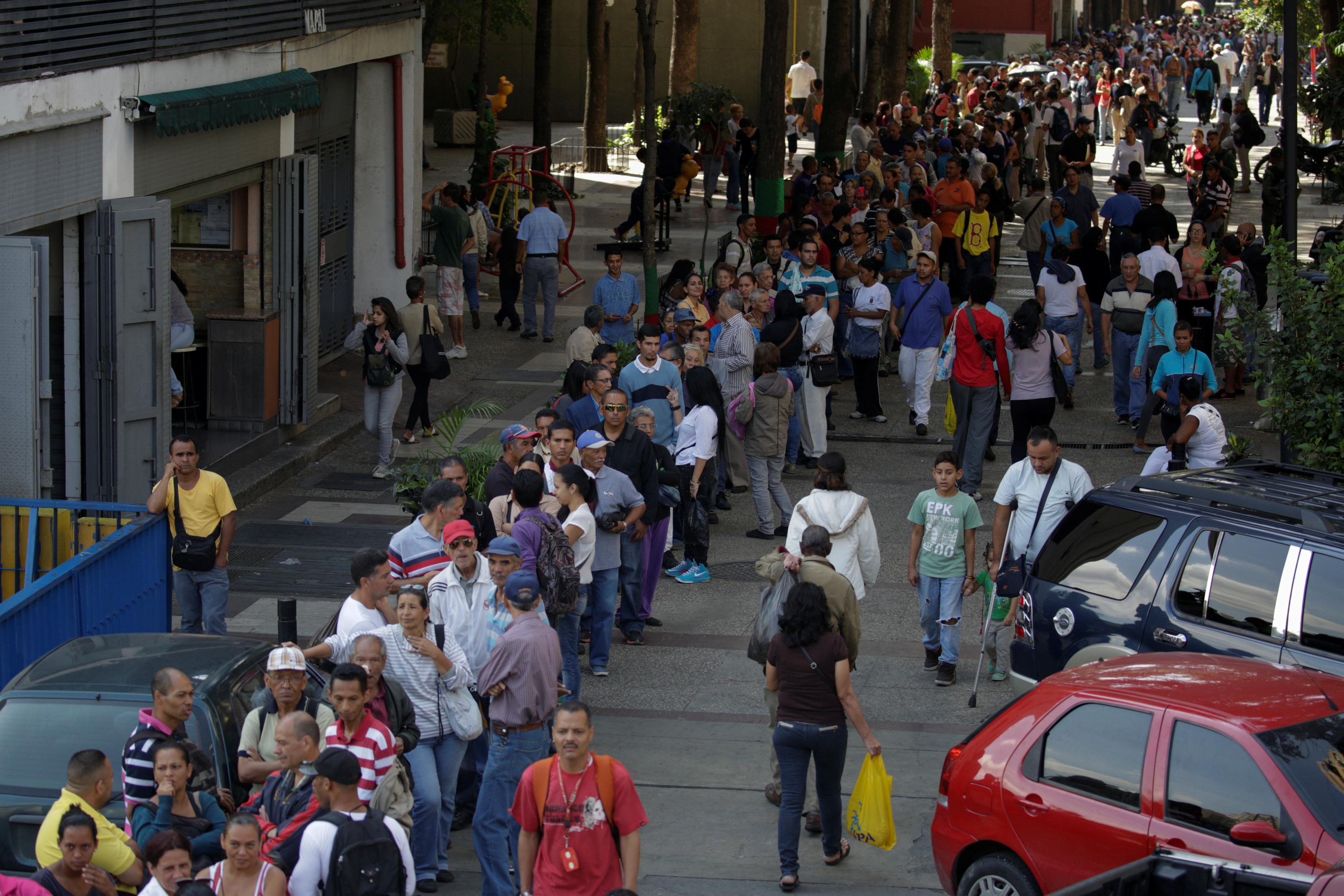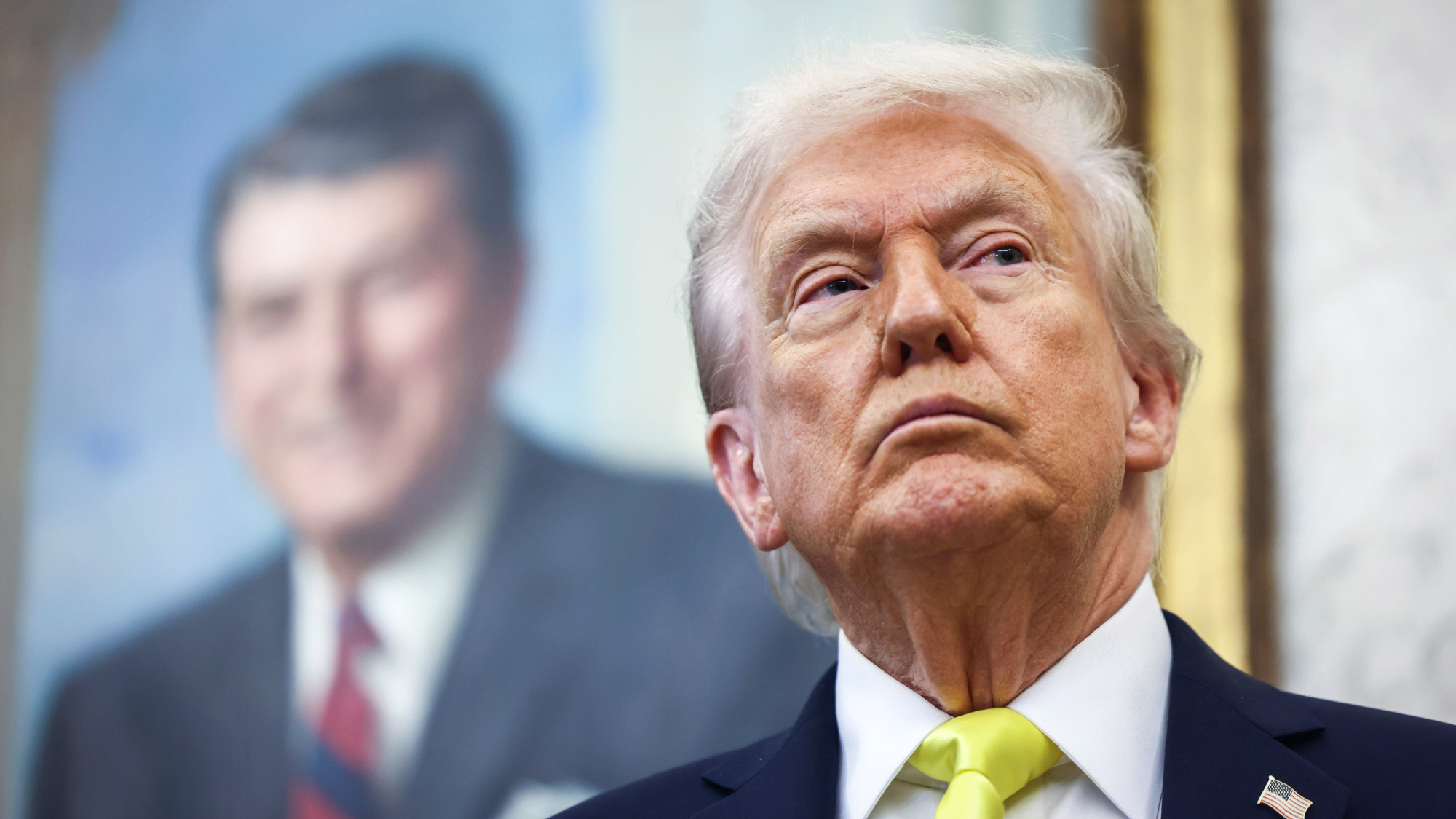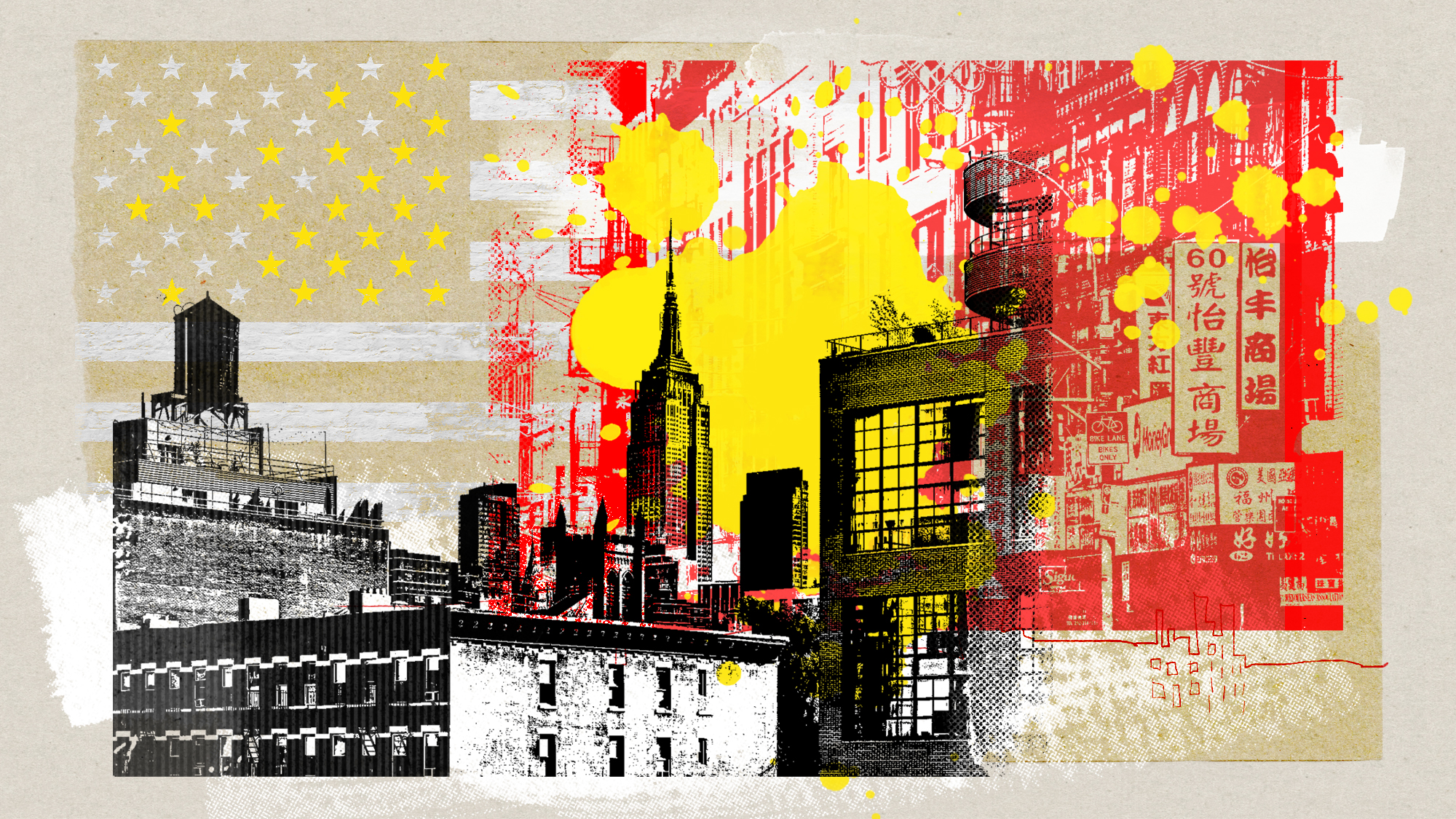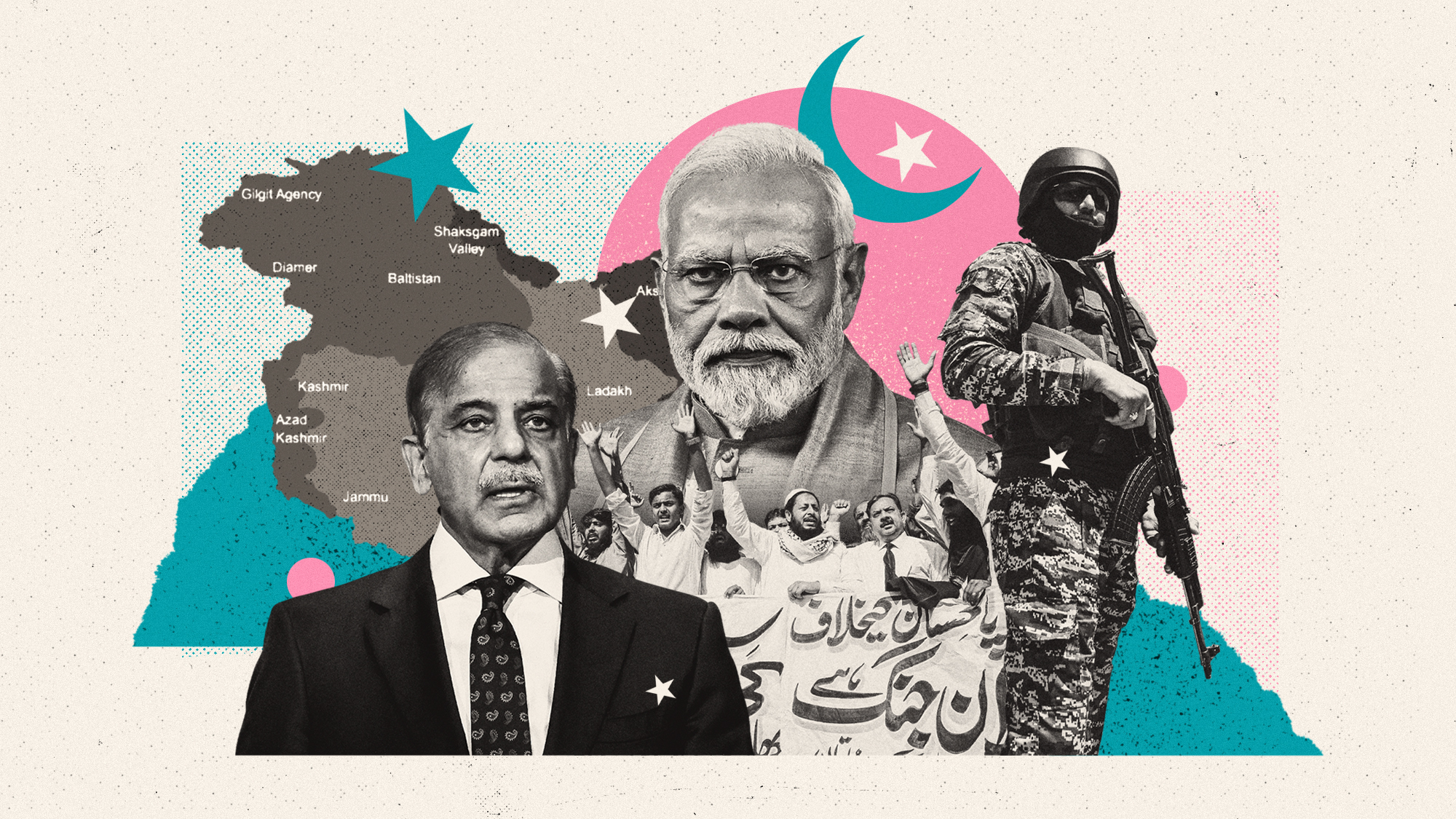Will Trump's populism turn America into Venezuela?
Think about the core beliefs and promises of populist economics: The economy will boom as never before, and there are no constraints on economic policy


It wasn't so long ago that Wall Street had a fever — and the only cure was more Trumponomics.
In December, frothy investors claimed stocks were surging over the mere anticipation of Donald Trump and the Republican Congress cutting taxes and regulation like crazy. In a viral LinkedIn post, hedge-fund billionaire Ray Dalio went positively metaphysical. He argued that Trump's pro-business attitude could "ignite animal spirits" across corporate America and "spark a virtuous circle" in which capital pours into America, boosting the economy and attracting even more capital.
Lots has happened since then, including Trump bullying businesses to keep jobs in the U.S., his failed travel ban, and the humiliating collapse of health-care reform. Even tax cuts, the veritable raison d'être of the modern GOP, are looking surprisingly iffy. And lo and behold, for the past month, stocks have been drifting lower.
The Week
Escape your echo chamber. Get the facts behind the news, plus analysis from multiple perspectives.

Sign up for The Week's Free Newsletters
From our morning news briefing to a weekly Good News Newsletter, get the best of The Week delivered directly to your inbox.
From our morning news briefing to a weekly Good News Newsletter, get the best of The Week delivered directly to your inbox.
Oh, and Dalio? He recently authored a 61-page report examining the rise of populist political leaders since 1900, an analysis that seems like a cautionary tale. Maybe you get an FDR, but more likely a Mussolini or Chavez. And you almost certainly get someone who doesn't much like banks, trade, or immigrants — you know, all the stuff Wall Street really likes. While Dalio earlier made Trump out to be a sort of Ayn Randian hero of free enterprise, he now refers to him as a populist about whom "we have more questions than answers."
But we actually do have some answers. It's just that the Dalio report failed to mention some of the central research about populism, which can help us predict what might happen under America's populist president.
In their 1991 paper "The Macroeconomics of Populism," Rudiger Dornbusch and Sebastian Edwards identified how populists rise and what they do when in power. The key ingredients are a population deeply dissatisfied with the economy's performance, and a populist savior who ignores the existence of any type of constraints on economic policy.
In Latin America, the region Dornbusch and Edwards examined, populist policies "do ultimately fail; and when they fail it is always at a frightening cost to the very groups that were supposed to be favored." These costs typically include high inflation, pervasive shortages, capital flight, and recession. Just look at post-Chávez Venezuela, which continues its slow-motion disintegration.
A free daily email with the biggest news stories of the day – and the best features from TheWeek.com
Now, America is not disintegrating. Ours is a rich, well-run, advanced economy. This isn't Chavez's Venezuela or Peron's Argentina. And it probably won't be even under the worst eight years imaginable under Trump. But think about the core beliefs and promises of populist economics: The economy will boom as never before, and there are no constraints on economic policy like, say, Chinese retaliation to an America First trade policy. Economic reality is fake news, so there's no way that massive fiscal stimulus during an expansion might send inflation soaring. Cronyism won't create terrible incentives for business.
As my AEI colleague and economist Stan Veuger explains, the temptation to buy into the unrealistic populist vision "led to the popularity of Chavismo and Peronismo and a variety of other flavors of economic populism. I think it is also the most charitable interpretation of support for Trump's economic policy agenda — which ignores simple budgetary arithmetic, trade-offs in health policy, and the realities of trade and technology."
Of course, we are only a few months into the Trump presidency. And it remains unclear to what extent he will attempt to turn populist campaign promises into reality. In some ways, he's an atypical populist, as seen in his interest in deregulating the big banks. But the strength of U.S. political institutions is key. In Latin America, institutions have often been weak with populist leaders taking control of them very quickly to pass their policies. In a recent Financial Times interview, Sebastian Edwards expressed confidence that U.S. institutions will be far more able "to handle whatever testing of their limits the Donald Trump presidency attempts."
If Edwards is right, Congress will push back against extreme trade and immigration actions, make sure tax cuts don't explode deficits, and insist the Trump White House try to seriously reform Medicare and Social Security. The Federal Reserve might be a key flash point. Over the the next year, Trump will able to fill three existing vacancies on the Fed's seven-member board. He can also choose to replace both Fed Chair Janet Yellen and Vice-Chair Stanley Fischer when their terms expire in February 2018. Monetary policy mischief is a populist hallmark, as is short-term thinking. Run the printing presses to boost growth today, worry about inflation tomorrow.
Hmm. Short-term thinking. Overpromising. No interest in policy math. Sound like anyone we know?
James Pethokoukis is the DeWitt Wallace Fellow at the American Enterprise Institute where he runs the AEIdeas blog. He has also written for The New York Times, National Review, Commentary, The Weekly Standard, and other places.
-
 Argentina’s Milei buoyed by regional election wins
Argentina’s Milei buoyed by regional election winsSpeed Read Argentine President Javier Milei is an ally of President Trump, receiving billions of dollars in backing from his administration
-
 Trump vows new tariffs on Canada over Reagan ad
Trump vows new tariffs on Canada over Reagan adspeed read The ad that offended the president has Ronald Reagan explaining why import taxes hurt the economy
-
 Political cartoons for October 27
Political cartoons for October 27Cartoons Monday's political cartoons include improving national monuments, the NBA gambling scandal, and the AI energy vampire
-
 Sanae Takaichi: Japan’s Iron Lady set to be the country’s first woman prime minister
Sanae Takaichi: Japan’s Iron Lady set to be the country’s first woman prime ministerIn the Spotlight Takaichi is a member of Japan’s conservative, nationalist Liberal Democratic Party
-
 Russia is ‘helping China’ prepare for an invasion of Taiwan
Russia is ‘helping China’ prepare for an invasion of TaiwanIn the Spotlight Russia is reportedly allowing China access to military training
-
 Interpol arrests hundreds in Africa-wide sextortion crackdown
Interpol arrests hundreds in Africa-wide sextortion crackdownIN THE SPOTLIGHT A series of stings disrupts major cybercrime operations as law enforcement estimates millions in losses from schemes designed to prey on lonely users
-
 China is silently expanding its influence in American cities
China is silently expanding its influence in American citiesUnder the Radar New York City and San Francisco, among others, have reportedly been targeted
-
 How China uses 'dark fleets' to circumvent trade sanctions
How China uses 'dark fleets' to circumvent trade sanctionsThe Explainer The fleets are used to smuggle goods like oil and fish
-
 One year after mass protests, why are Kenyans taking to the streets again?
One year after mass protests, why are Kenyans taking to the streets again?today's big question More than 60 protesters died during demonstrations in 2024
-
 What happens if tensions between India and Pakistan boil over?
What happens if tensions between India and Pakistan boil over?TODAY'S BIG QUESTION As the two nuclear-armed neighbors rattle their sabers in the wake of a terrorist attack on the contested Kashmir region, experts worry that the worst might be yet to come
-
 Why Russia removed the Taliban's terrorist designation
Why Russia removed the Taliban's terrorist designationThe Explainer Russia had designated the Taliban as a terrorist group over 20 years ago
